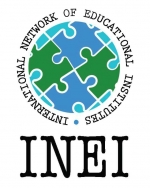The topic of the first issue of Education Alliance Quarterly is teacher education. The most important single factor for the quality of education – and thus for the efficiency and quality of pupils’ learning – is the quality of the teachers’ training.
Education Alliance Quarterly, Vol. 1, August 2008
(unavailable for download)
The first global education forum
To enhance the interaction across borders and to create an open knowledge-based culture and a global public forum concerning educational research and policy, we need new media for sharing knowledge about these urgent matters of common interest. By publishing Quarterly, the Alliance intends to establish a reliable and effective communication channel for global propagation of research-based knowledge about education and educational policy.
Cultivating creative thinking in Singapore
Unlike many western countries, where teacher training institutions struggle with budget cuts, low wages and issues of prestige and recruitment, the challenge for Singapore is different: to introduce critical, lateral and creative thinking into a rather rigid, authoritative and top-down, state-controlled teacher education system.
It is not enough to be an expert in your field
It is not enough for a teacher to be professionally skilled if they are to encourage pupils’ learning. The efficient and professional teacher must possess the right combination of professional and subject didactic knowledge. And this combination is best achieved by way of research-based teacher training, according to Danish Professor of Educational Sociology Jens Rasmussen.
Teacher educators need ongoing education
Two myths are under attack. One is that some people are born teachers. The other is that teachers are fully developed and do not need any ongoing education. Two researchers from the University of Toronto tell us that the most successful teachers are the ones who continue to learn throughout their careers for the benefit of student learning.
Professionalism means facing everyday life
To improve the poor quality of Brazilian public schools, the teachers have to better understand the pupils and the culture of everyday life at the schools. Teacher training may contribute to this, but another way would be to keep teachers in the same school, to increase their commitment to one school and to strengthen their professionalism in this way.
The worlds first think tank on education
In August 2007, deans from leading educational faculties and university schools convened at the National Institute of Education in Singapore to lay the foundation for the world’s first think tank on education.
Public education is still a money matter
The USA is a land of contrast and differences, which is particularly evident in the educational system. Fast-track teaching certification programmes may alleviate the teacher shortage, but at the same time they create major educational inequity issues between those schools (and parents) who can afford highly qualified teachers and those who cannot.
Wanted: Chinese teachers with higher qualifications
China’s challenge is not to attract more teacher students but how to attract those with the best qualifications and to motivate them to work in rural areas. Upgrading programmes and reward systems are some of the strategic tools employed.
Government policy determines the success or failure of partnerships
In Britain, teacher training is organised as a partnership between higher education institutions and schools. Professor Chris Husbands from the Institute of Education, University of London believes that partnerships are a great idea, but that partnerships would be more successful if the political establishment had greater confidence in the educational system.
Teacher training for the 21st century in Korea
The Korean educational system is not capable of satisfying the requirements of the knowledge and information society. Only one-third of the pupils in a classroom are able to follow the teaching. The rest lag behind. A new six-year teacher training programme may provide a solution to the crisis, according to Dean Cho Youngdal from Seoul National University.
